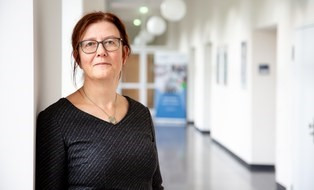According to Louter there is too little attention for problems that PhD students encounter. 'The number of PhD candidates with burnout or loneliness is increasing. One third of PhD candidates even become clinically depressed,' says Louter. According to her, this is mainly due to the fact that PhD candidates do not receive proper process guidance during their research. As a result, PhD students get into trouble. 'When you do a PhD, you're starting something completely new. This applies to both the person and the new research they are working on. They have to draw up a process plan, but how do you do that for something that takes four years? The main thing that is lacking is guidance in that process,' says Louter. 'Supervision at universities is now mainly focused on the content. For example, motivation, planning, a good work-life balance, working together with your supervisors and knowing how to write something down are prerequisites for being able to work with that content.'
Help for PhD supervisors
Louter initially wrote the book for PhD students, but with her book she also wants to appeal to PhD supervisors. According to her, a good researcher does not make someone a good supervisor. 'This book offers them tools in that work process. It is extremely important how you deal with PhD candidates. The book also makes it easier to recognise where support is needed or when someone gets stuck in their research.' The PhD coach thinks it's time for a change. 'The aim of this book is to draw attention to the problem of counselling.'
Energy management
In addition, tips and tricks in the book should help PhD students on their way. 'A lot of PhD students think they have to sit behind their laptops from nine to six. Or they work in the lab all day. Go home if you feel that you have no energy left at two o'clock in the afternoon. If you use that free time to recharge with a walk or something nice for yourself, you'll be fresh the next day. 'Energy management' is therefore more important than time management', says Louter. 'Anyone can make a plan, but how you spread your energy over the day and week is crucial.'
Finally finished after ten years
Louter started working on her book in 2014. After almost ten years, it is finally available. 'Years ago, ninety percent of the work was done. The English publisher then decided against it at the last minute. Due to bumps and delays, the book is only now being published. But in an updated, supplemented and improved version.' She eventually completed her work with Dr. Lodewijk Schmit Jongbloed and Dr. Marjon Wijnen-Meijer.
'So postponement did not mean a certain cancellation. I think it's important to get this book out there. Only ten percent of PhD candidates complete their research within the scheduled time. I hope this book helps to increase that percentage. The best thing would be for me to become superfluous, but it doesn't happen that fast. Changes at the universities don't happen quickly.'
The book launch will take place on 4 November during the symposium 'From content to process: a new perspective on successful PhDs', in Utrecht.


Left: Marjo Wijnen - Meijer
Right: Lodewijk Schmit Jongbloed






